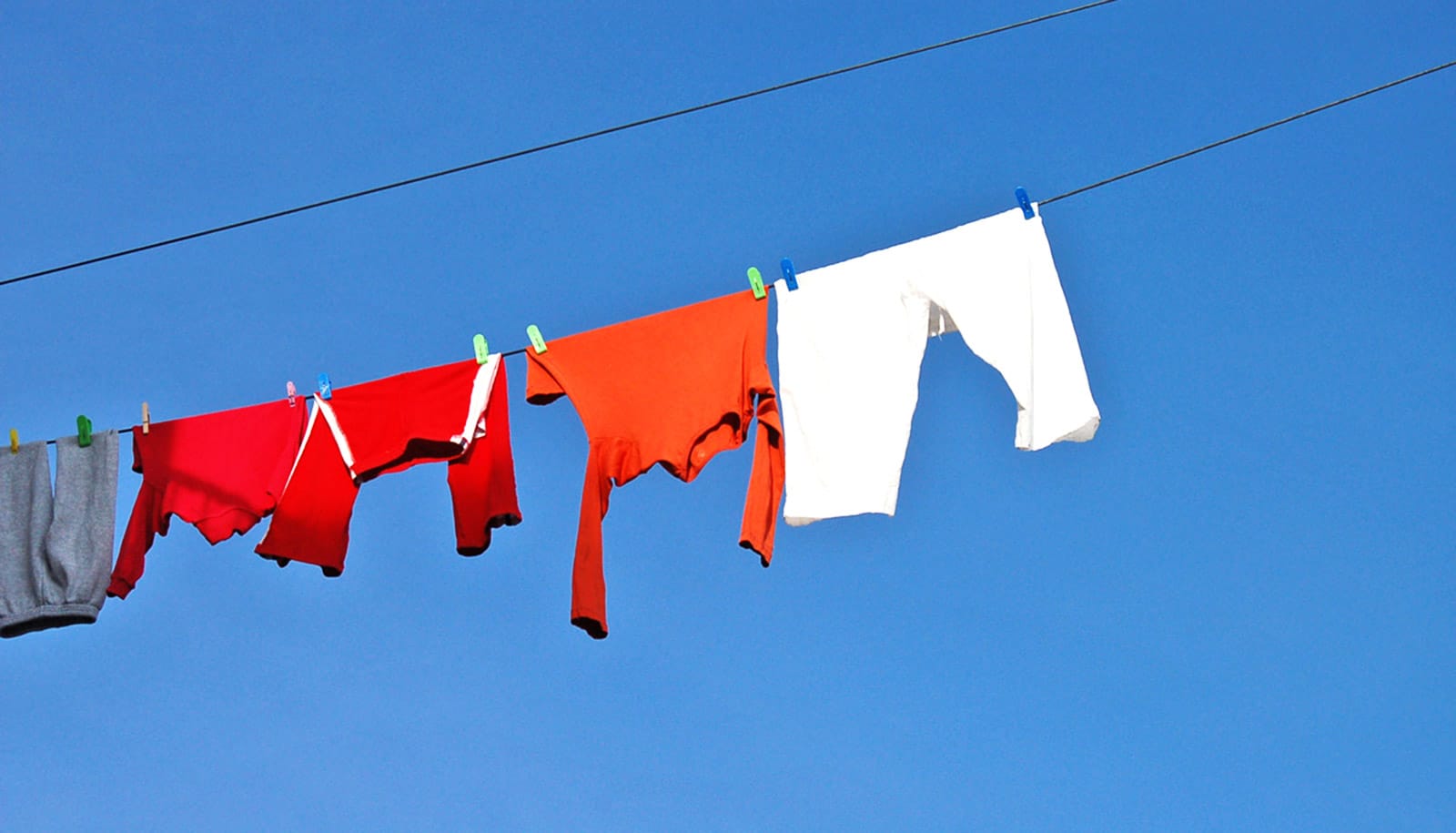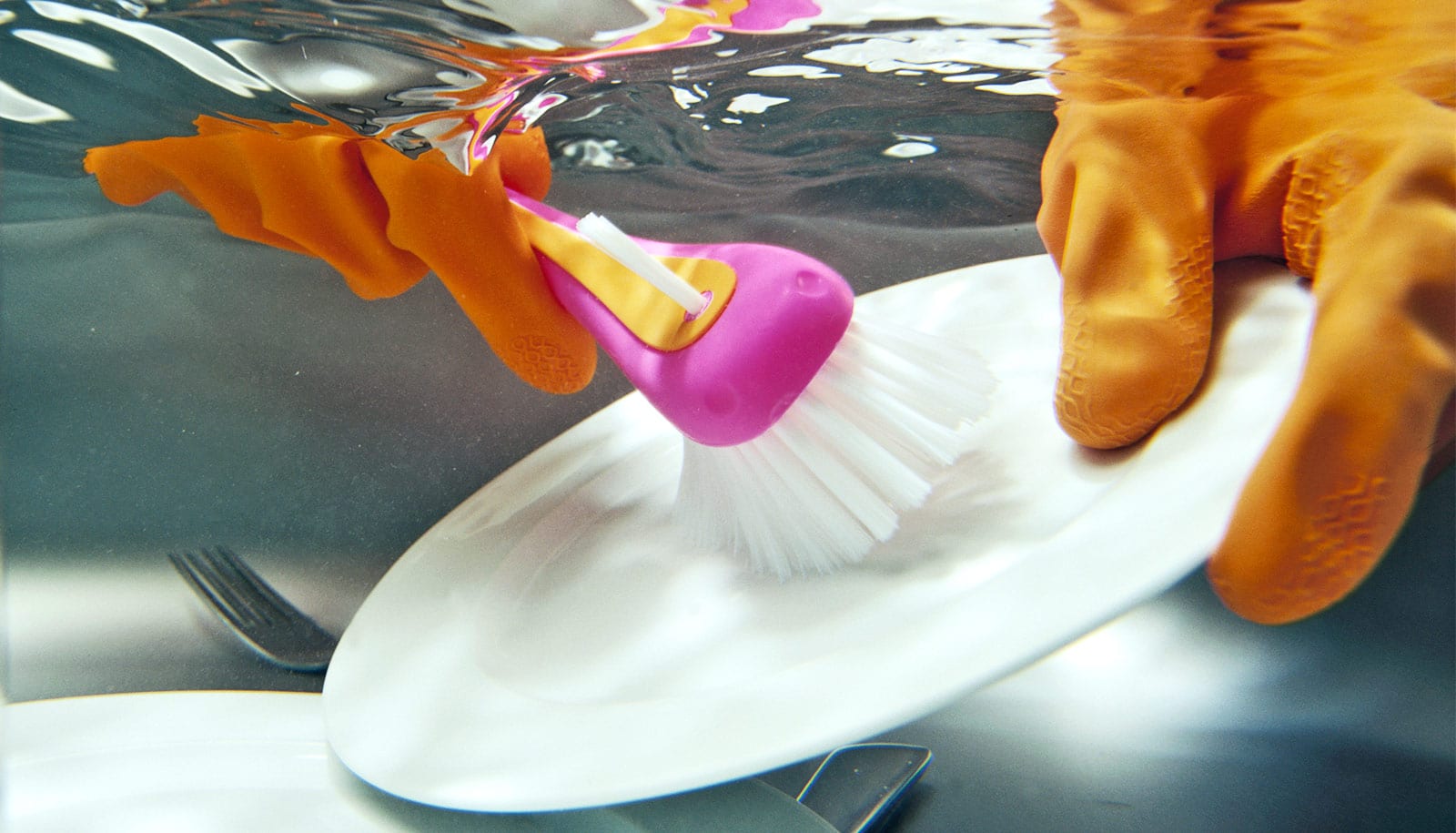An unusual experiment clarifies why laundry that dries outdoors smells so good.
The findings, published in Environmental Chemistry, show that towels that dried in the sun produced a range of aldehydes and ketones: organic compounds that our noses associate with the scent of plants or perfume.
The researchers washed towels three times by hand in ultra-clean water in which there were no particles, microorganisms, or salts.
They then hung the untreated towels to dry on clotheslines: in a dark room, on a balcony exposed to sunlight, and on a shaded balcony.
They compared the three types of dried towels by sealing them in plastic bags for 15 hours, allowing the chemical compounds release within the bags. The air was then sucked from the bags through a GC/MS measuring instrument (gas chromatography-mass spectrometry) to analyze the chemical compounds. The researchers also analyzed the air in an empty bag and the air at the drying stations to compare with the dried towels.
What’s that line-dried laundry smell?
The researchers’ experiments on colored towels generated similar findings, with the identification of large amounts of aldehydes and ketones.
“The sun-dried towels clearly had the highest concentrations of oxidized compounds (fragrances). In other words, the sun catalyzed photochemical processes that created the fragrances that we found,” explains Malte Frydenlund of the University of Copenhagen, a coauthor of the study in Environmental Chemistry.
For example, line-dried towels emitted pentanal, a compound found in cardamom; octanal, which emits citrus-like aromas; and nonanal, which has a rose-like odor.
Here are the most distinctive substances found in the towels and the odors they are associated with:
- Methylfuran = Chocolaty
- 2-Butylfuran = Fruity, sweet
- 3-Methylbutanal = Fruity, toasted
- Nonanoic acid = Waxy
- Heptanal = Fruity, green, herbaceous
- Octanal = Aldehyde-like, green
- 2-Heptanone = Fruity, nutty
- Nonanal = Fresh, floral, citrusy
- Pentanal = Fruity
- Ethyl vinyl ketone = Bitter, peppery
- 2-Methyl-1-propanol = Ether, wine
- 2-Hexenal = Sweet, almond, fruity, green, leaves
- Methacrolein = Floral
Why study towels?
“People laughed and thought it was a bit odd that we were going around with wet towels to hang up and dry,” says Frydenlund.
But the research community’s understanding of what happens when wet surfaces react with sunlight and air is lacking. While the study primarily served to identify the scents created when laundry is line-dried, Frydenlund has suggestions for how the scents arise:
“When ozone in the air reacts with the materials in a wet towel, aldehydes and ketones are formed—which match the fragrances identified in the study. This could be part of the explanation. But we also think that there is something directly attributable to sunlight. For example, pigments or dyes in towels, found even when the towels are untreated, absorb sunlight and lead to chemical transformations,” he says.
“This mechanism can take place on nearly any exposed surface and is important for the degradation of substances in the environment. Therefore, it is incredibly important for us to gain insight into these processes. Hopefully, this study marks a step in that direction.”
The department of chemistry and the University of Copenhagen supported the work.
Source: University of Copenhagen


